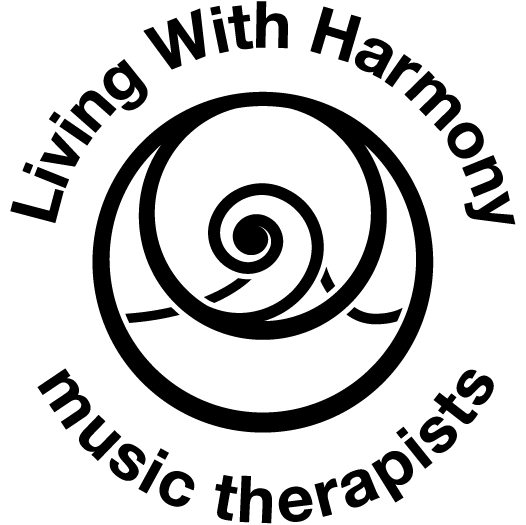Music Therapy for the Elderly
Singing,dancing and Playing Instruments
Listen to our interview on BBC radio Solent to find out more
Living with Harmony music therapists offer specific music therapy approaches to further enhance the quality of life and range of specialist care available for elderly people. There is particular evidence for the use of music therapy in reducing agitation, anxiety and apathy for people with dementia (1). Research and innovative practice is showing the value of music in care and wellbeing. Elderly people can make even more from the music opportunities already available and carers become inspired to use more music therapy-based practice throughout the day.
Adding music therapy to your range of services brings value to the older residents in care or nursing homes and also makes your homes stand out as engaging in current best practice in the care of adults with dementia. BAMT as part of Music Therapy Week hosted a parliamentary round table discussion where representatives form NHS England and Public Health England along with the Alzheimer's Society and care provider MHA all agreed that Music therapy will become standard care for people with dementia.
Music therapy groups also bring social opportunities and enjoyment to older people who are not cognitively impaired but may have reduced mobility or frail health.
The Service
Living with Harmony music therapists, Alistair Clarkson and Meta Killick, are both HCPC registered and fully insured so you can be confident in the standards of the service.
We offer consultation and assessment sessions for individuals or for care home groups. The group sessions are created around the participants (residents, carers, visitors) and can include singing, playing instruments, dancing and talking. How each session runs will depend on the individuals in that particular group. 1-1 assessments are also useful for people still living at home and can guide the onging use of music to support and maintain the person.
Our unique knowledge and experience of working with individuals in care homes and with organisations gives us confidence that Living with Harmony music therapy can bring powerful benefits to elderly people when they need and deserve it most.
The Environment
The soundscape of your care home can help people to thrive. Noise can be toxic to wellbeing this infographic from A Quiet Refuge could help you think about the noises and their effects. We suggest turning off TV and radio at times during the day and allowing space for silence.
Outcomes
The sessions allow staff to develop their creative potential (2) as well as giving direct benefit to residents. Community group music therapy also brings musical communication alive between friends and family and their loved ones.
Reduced agitation, anxiety and apathy for residents
Staff motivation and confidence (in using music)
Family and friends participation and pleasure
Importantly, as you know, there is also a link between happiness and life expectancy. Research shows that how happy, engaged or content a person feels in the moment can have a significant impact on their chances of dying - this is in spite of mental health issues in later life (3). Music therapy lifts mood (4) and has a positive impact across all stages of dementia. Living with Harmony can bring additional value to the very positive work you already offer.
References can be found here.

